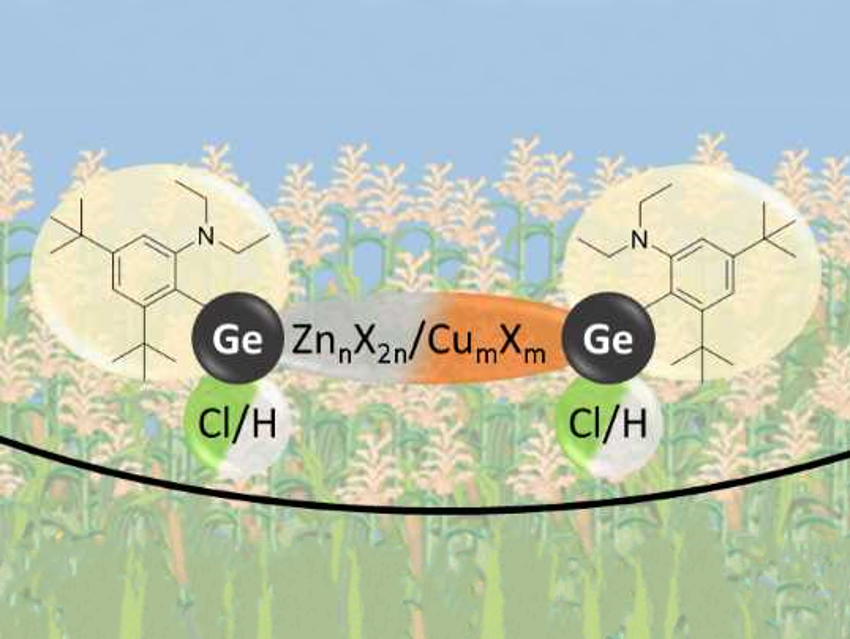Biodegradable plastics made from renewable sources could offer a solution to the existing plastic waste problem. Currently, one promising material in this area is polylactide (PLA). To date, the industrial production of PLA uses a tin compound as catalyst for the production of PLA. It remains in the polymer, accumulates in the environment, and can have toxic effects. Germanium has similar properties to tin but is non-toxic.
Roman Jambor, University of Pardubice, Czech Republic, Sonja Herres‐Pawlis, RWTH Aachen University, Germany, and colleagues have developed germanium-based catalysts for the production of PLA. The team synthesized several structurally similar Ge-Zn or Ge-Cu complexes. In these complexes, germylenes with a 2‐Et2NCH2‐4,6‐tBu2‐C6H2 group act as ancillary ligands for Zu or Cu. The complexes were characterized using single-crystal X-ray powder diffraction (XRD), and the bond situations were studied using density functional theory (DFT) calculations.
The team tested the polymerization activities of the complexes under industrially relevant conditions in bulk at 150 °C with a monomer to initiator (M/I) ratio of 5000:1. They found that the polymerization results can be correlated with the bond attributes around the Ge atom. This suggests that Ge is the active site for the polymerization.
The polymerization activities of the complexes are very high and exceed that of the Sn compound by up to two orders of magnitude. This shows the promise of Ge as a substitute for Sn catalysts in PLA production.
- Undiscovered Potential: Ge Catalysts for Lactide Polymerization,
Ruth D. Rittinghaus, Jakub Tremmel, Ales Růžička, Christian Conrads, Pascal Albrecht, Alexander Hoffmann, Agnieszka N. Ksiazkiewicz, Andrij Pich, Roman Jambor, Sonja Herres‐Pawlis,
Chem. Eur. J. 2019.
https://doi.org/10.1002/chem.201903949




